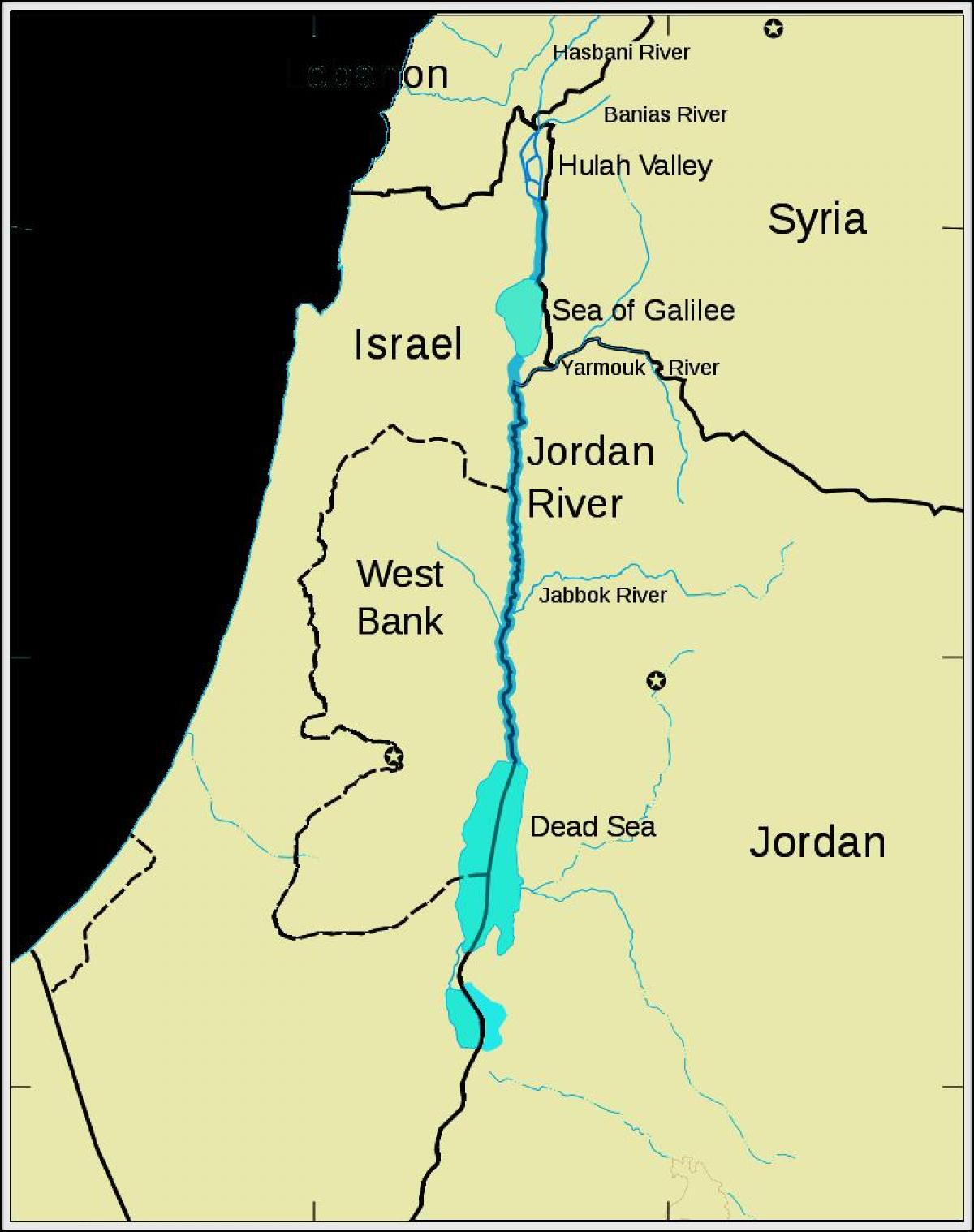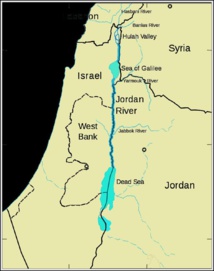“I almost got no water this summer," said Saadi, 47, who lives 1.5 kilometres west of an ancient Roman reservoir at the ruins of Jerash city, north of the capital Amman. The shortage has forced him to plant trees that "do not need a lot of water, such as carob.”
Jordan is one of the driest countries in the world, but falling groundwater levels, climate change and an increasing population due to an influx of refugees mean the situation is only likely to get worse in the coming years.
To solve the problem, many officials are placing their hopes on desalination projects, but this is a solution that comes with its own unique political challenges.
Jordan's water shortages have long forced it to apply a rationing system by pumping water to different areas once a week, allowing people to fill up their tanks.
Sometimes the schedule is interrupted and people do not get their weekly share. That forces them to buy water from trucks instead - an expensive alternative where six cubic metres cost 25 dinars (35 dollars).
Saadi, who works at a juice shop, sometimes cannot afford the whole truck, so he splits it with a neighbour until the next pay check comes along.
Iyad Dahiyat, the head of Jordan's water authority, acknowledges there is public anger over the ongoing shortages.
"There is a general climate of unhappiness," he told dpa in Amman. "The situation is quite severe. We are finding it more difficult to supply our people with water."
About 70 percent of Jordan's resources come from groundwater - water extracted from beneath the Earth's surface. But Dahiyat says this source is diminishing due to an increasing population, over-use by the agriculture sector and climate change.
Increased temperatures and less rainfall mean groundwater reserves are not being replenished. Less water is also being captured in Jordan's 15 dams, as well as some 250 desert or sand dams which can hold up to 450 million cubic metres.
Falk Lindemaier, coordinator for ground water projects in Jordan at the German Federal Institute for Geosciences and Natural Resources, estimates the groundwater level has dropped around 50 metres in 22 years.
The problem is not that it will cease to exist, Lindemaier added, but that digging deeper for pumping and treating the groundwater will become too expensive.
While Jordanians recognize the scarcity of water resources, many also blame their suffering on corruption and lack of supervision in a country where the annual water per capita share has fallen from 1,000 cubic metres in the 1950s to as low as 80 in some areas today.
According to Water Ministry spokesman Omar Salameh, some 45 per cent of water reserves are lost due to theft and poor infrastructure in some areas. The government has been trying to combat illegal use while constantly seeking to expand its sources.
“It is not going to be easy for the next three years unless we put more supply into the system," said Dahiyat.
In 2014, water pumping began at one of Jordan's largest new projects, the Disi Water Conveyance. There are also plans to increase the capacity of dams, to expand waste water treatment and to dig more deep wells.
Officials believe desalination could be the most stable solution.
A Red Sea-Dead Sea water conveyance project has been on the table ever since Jordan, Israel and the Palestinian Authority signed a deal in December 2016. It would provide desalinated water to the three parties and pour higher salinity water back into the Dead Sea.
But the project has been at a standstill amid political tensions between Israel and Jordan, who signed a peace treaty in 1994.
Salameh said the project's go-ahead is pending the outcome of September elections in Israel. A spokesperson of Israel's Ministry of Regional Cooperation said the next government is expected to "discuss and confirm" the project as soon as it starts its work.
Dahiyat is pessimistic: “I don't see that project happening."
Jordan cannot wait any longer and is looking into having its own desalination project in the Red Sea city of Aqaba.
Dahiyat believes this could be the best solution to Jordan's water crisis, but it is expected to cost 1.5 billion dollars. Unless international donors step up, Amman will struggle to fund the expensive project.
This "has to be the highest priority on the government's agenda," said Dahiyat.
Surrounded by crises in several neighbouring countries, Jordan’s refugee population has also increased pressure on its water resources.
In Zaatari refugee camp, north-east of Amman, Ali Hussein Abdullah’s family used to queue at a communal tank to get daily water five years ago. Now, with three boreholes and a pipeline network inside the camp, life for these Syrian refugees is better.
According to Ahmed al-Tarawneh, an officer with UNICEF's WASH programme, they still need to truck an extra 1,000 cubic metres a day to provide each person with 55 litres - the minimum needed according to the World Health Organization. In winter, refugees get 35 litres per day.
Abdullah, 52, feels more at ease now that the situation in the camp has improved. His family can wash clothes more often and he even sets aside two buckets of water every week for the few trees he planted outside his caravan - trees reminiscent of his tomato and zucchini plants back in Syria.
------------------------------------------------------------------------------------------------









 Home
Home Politics
Politics











